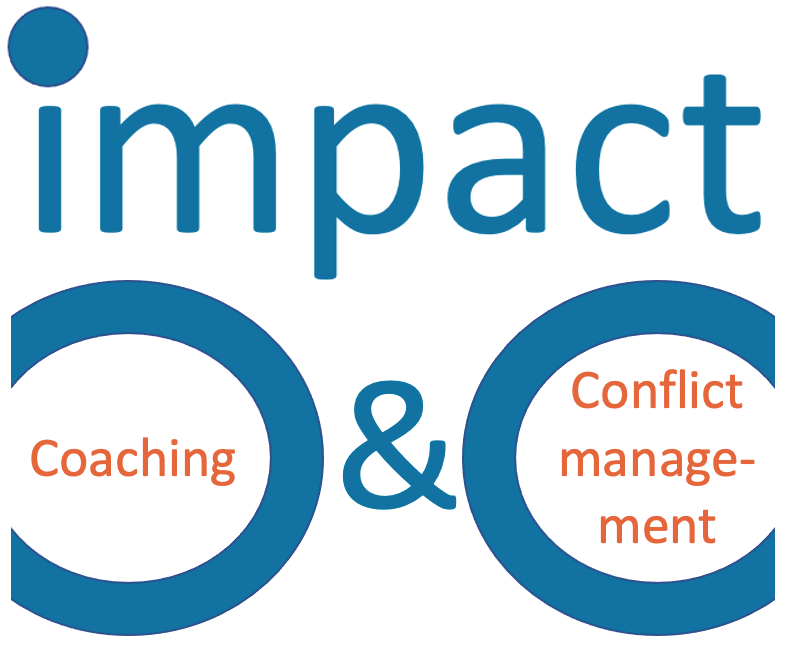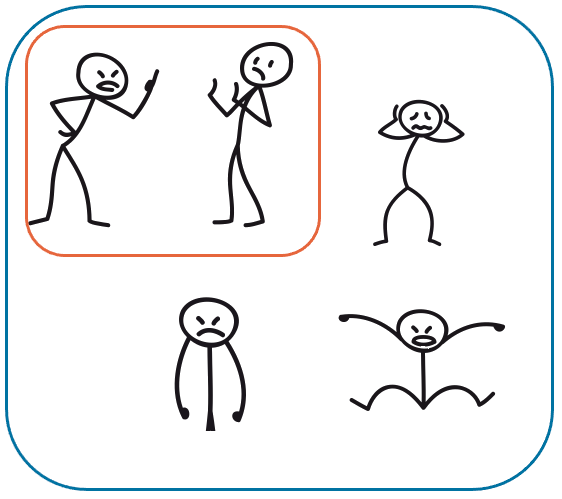Conflicts unfold strong dynamics. Between people (what we would call the social dynamics) but also inside ourselves. Neither the social dynamics nor the psychological ones are easily to “master”. They take us into a kind of spiral dynamics of how we see and feel about that person or those people we are in conflict with. Knowing and being aware of the different phenomena can put what we feel ( and consequently act on) in conflicts into perspective. Hence the importance to be aware how we feel in conflicts.
The psychodynamics of conflicts:
- our perception of the other(s) but also ourselves becomes more and more selective: we tend to see mainly the annoying behaviour of the other side whereas we have less perception of our own negative behaviours
- simplification: our capacity to differentiate and see shades diminishes, this concerns the situations we are encountering as well as the people we are having a conflict with
- we are growing steadily more inflexible in our opinions, our convictions and in our demands concerning a solution of the conflict; steadily less inclined to modify our position
- we start and “refine” our psychological diagnostics of our counterparts
- our willingness to take responsibility for what is happening in the conflict diminishes
Conflicts are de-stabilizing. These strategies help us to stabilize ourselves and to find our footing. They are, though, if left to take us in their negative swirl, unhealthy for us and escalating the conflict.
Stepping back in such situations is not easy, but essential. Talk to a friend, a colleague, a peer, your partner and ask for a critical reflection. Even if you we are much more inclined (as we all are in conflicts) to look for endorsement.


One response to “How we feel in conflicts”
[…] How we feel in conflicts […]